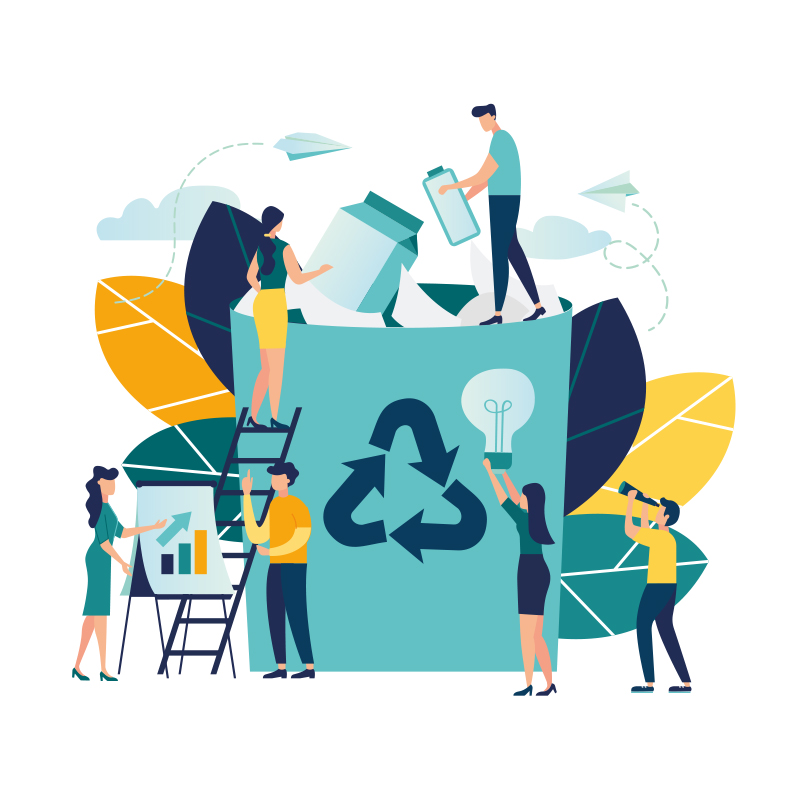
13 Nov Bin Trim Update
Because of the SRBEC Bin Trim program, I have, in the last few months, been to Waste expos in Sydney and Melbourne.
For businesses, the usual equipment providers were on display which is most useful when managing and transporting waste at a macro level. There were smaller companies present, reflecting some emerging technologies such as turning cardboard into effective packaging, food containers for personal use in restaurants, technologies which measures material levels in a waste bin and Keep cups for coffee drinking and no waste.
Perhaps the biggest matter of interest at both forums was Government and Industry action around the circular economy concept, about which our July edition article has commented. This focus is reinforced by the news that a number of Asian countries, such as Vietnam, are also closing their borders to contaminated waste stream material imports, just as China has done.
Additionally, consistent with this interest by Government at these expos is that, on October 22nd, the NSW Government released its consultation launch of its draft Circular Economy Policy. Follow the link below: https://www.epa.nsw.gov.au/news/media-releases/2018/epamedia181022
What remains missing however in these large, waste-focussed forums is a discussion of how rural and regional community businesses might benefit from smart waste stream strategies and operations.
We know from the SRBEC Bin Trim program (web address) that in smaller sized communities, smaller balers are useful, good sized worm farms are valuable and smart organics composting is helpful. As in most such communities however there is a need to process film plastics, break down tyres, make use of wood or pallets to manufacture locally valuable products or process all organic materials and sell the resultant compost. These are business opportunities.
In our Bin Trim program work, we see companies across our region using:
* smart milk portioning equipment
* carboard and paper boxes to build a whole internal filing system
* shrinking used milk containers by heating with steam
* selling keep-cups for coffee drink sales
* time to work closely with cleaners
* clever waste bin labelling and signage; and
* using organics for lots of local purposes
We have also come across business people who asked their suppliers to stop sending their goods in so much packaging. This is a very useful strategy. One example meant plastic packaging was replaced by a rubber band! Another example is that providers of food might be asked by the retail food industry if the vegetables and fruit they receive can be topped and tailed so the resultant cut-offs remain on farm for composting and to support good soil development.
Finally, the SRBEC has organised a forum on the Circular economy on November 20th 2018. Details on how to register can be found below, so come along and hear from international presenters from the European Union who will show how utilising the materials of the waste stream is an economic driver for a local regional community.
Register here;
https://www.eventbrite.com.au/e/making-the-circular-economy-work-for-our-region-tickets-52451035459
Last but not least, Bin Trim is proud to announce that we are now on Facebook!
Visit us at; https://www.facebook.com/SRBEC-Bin-Trim-Program-1964899606908472/?ref=bookmarks
